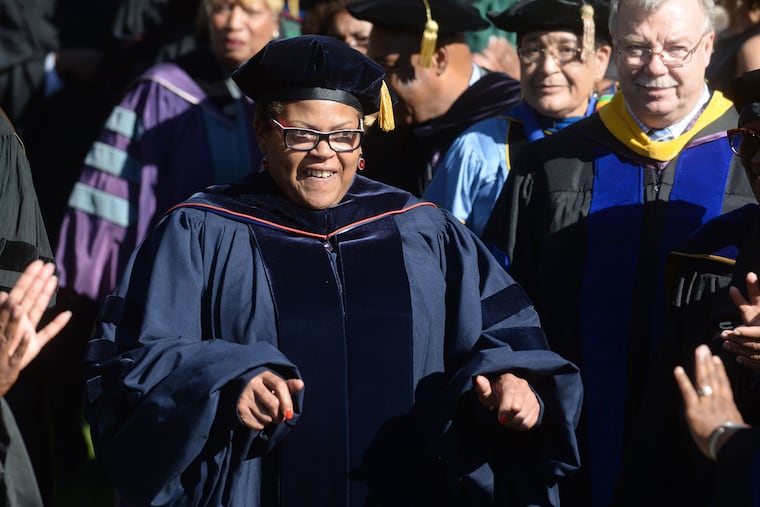Pennsylvania’s governor and top prosecutor sued Lincoln University over the ouster of its president
The sudden ouster of Lincoln University President Brenda A. Allen has now drawn the ire of Pennsylvania Gov. Tom Wolf and state Attorney General Josh Shapiro.

The sudden ouster of Lincoln University’s president has now drawn the ire of Pennsylvania Gov. Tom Wolf and the state’s top prosecutor.
Wolf and state Attorney General Josh Shapiro sued Lincoln’s board of trustees and board chairperson, Theresa R. Braswell, late last week for allegedly violating state law and the board’s own bylaws in voting against retaining president Brenda A. Allen at a July 10 board meeting. Lincoln, a historically Black university in Chester County, is one of four state-related institutions on which the governor serves as an ex-officio board member.
The vote was taken in private in violation of the state’s Sunshine Act, the lawsuit, filed Friday, says, and five of the trustees appointed by the state were barred from participating in the Zoom meeting.
Wolf and Shapiro asked Commonwealth Court to declare the vote invalid.
“There is no provision in the Sunshine Act authorizing secret ballots or votes in executive session or precluding the right of any member of the board covered by the Sunshine Act to vote during a public meeting,” the lawsuit says.
The board has not commented on why it didn’t renew Allen’s contract. A university spokesperson did not respond to a request for comment on the lawsuit. Allen’s lawyer could not be reached for comment.
Board members could face fines of $100 to $1,000 if the court determines the law was violated.
The controversy erupted at Lincoln earlier this month as rumors circulated that the board planned to not retain Allen, who has led the school for three years, earning widespread support among faculty, students, and alumni. More than 14,000 people signed an online petition backing Allen, whose contract ran out June 30. Allen, a 1981 Lincoln graduate, sued the board last week, saying members illegally voted to end her tenure. Allen, her supporters say, has improved student retention and alumni giving.
This marks the second time in six years that a leadership decision at Lincoln has erupted into public view. In 2014, Robert Jennings resigned amid backlash over statements that some saw as blaming women for sexual assault.
The university’s bylaws require a 10-day notice of a special meeting and say that only action described in the notice can be taken without unanimous consent of trustees, according to the suit. The notice for the July 10 meeting did not specify that Allen’s contract would be considered, the suit noted, but instead said: “University Leadership - Next Steps.”
Lincoln’s board, under its bylaws, should consist of 39 voting members, but at the July 10 meeting, the board said there were 21 of only 23 members present. The state has 12 appointments, including four by the governor, four by the speaker of the House, and four by the president of the Senate. According to the suit, four of the state-appointed trustees and the governor’s representative had their microphones muted by the Zoom host. They also were denied participation in the private session where the vote was taken, excluded from the roll call, and prohibited from voting, the suit said.
During the private session, the board conducted a secret ballot on whether to renew Allen’s contract and announced later that it failed, the suit said.
The board later voted in public session to search for an interim president. The five state-appointed trustees, however, were barred from voting and the motion was passed by 14-7, according to the lawsuit.
Braswell, the suit says, excluded the state trustees because they had not been vetted by a board committee, but there is no provision that requires such vetting.
Braswell’s actions, the suit says, were in “willful defiance and wanton disregard of the advice of the university’s legal counsel” and the university’s bylaws.